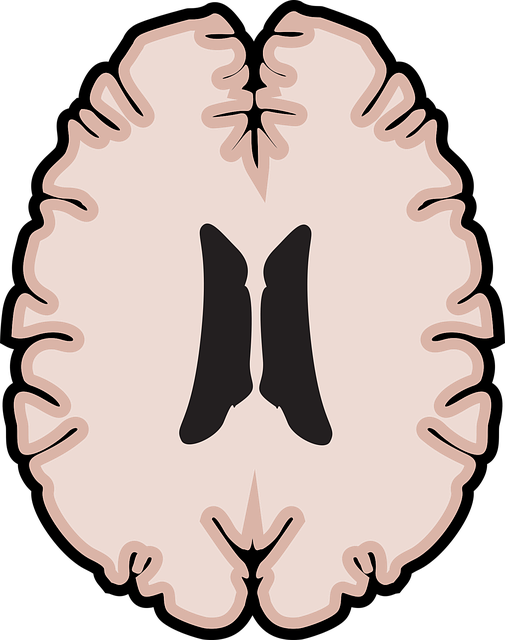Risk assessment is a cornerstone of mental health practice, especially in Northglenn Acceptance and Commitment Therapy (ACT) settings, aiming to protect client well-being and improve therapy outcomes. ACT practitioners use comprehensive risk assessments considering client history, treatment approaches, and environmental factors. They address resistance to change, cultural sensitivity, and maintain confidentiality through training and clear boundaries. Evidence-based practices, such as ACT, open communication, regular check-ins, and community outreach programs mitigate risks and promote holistic well-being, with case studies showcasing successful outcomes.
In the realm of mental health practice, risk assessment is a crucial component for ensuring client safety. This comprehensive guide explores risk management within Northglenn Acceptance and Commitment Therapy (ACT) settings, delving into identifying potential hazards, ethical considerations, and effective strategies to mitigate risks. From understanding risk assessment’s role to presenting real-world case studies, this article offers insights for mental health professionals aiming to navigate challenges and foster a secure therapeutic environment using ACT principles.
- Understanding Risk Assessment in Mental Health Practice
- Identifying Potential Risks in Northglenn Acceptance and Commitment Therapy (ACT) Settings
- Ethical Considerations for Mental Health Professionals
- Strategies to Mitigate Risks for Client Safety and Well-being
- Case Studies: Effective Risk Management in ACT Therapy
Understanding Risk Assessment in Mental Health Practice

Risk assessment is a crucial aspect of mental health practice that involves systematically evaluating potential risks and hazards within the therapeutic environment. For professionals like those at Northglenn Acceptance and Commitment Therapy (ACT), understanding risk assessment is vital to ensuring client safety and delivering effective care. It encompasses identifying vulnerabilities, anticipating possible outcomes, and implementing strategies to mitigate risks associated with various factors such as client history, treatment methods, and environmental influences.
A well-designed Mental Health Education Programs can significantly enhance professionals’ risk assessment skills by providing them with comprehensive knowledge and practical tools. This education focuses on topics like building confidence and improving self-esteem, which are essential for practitioners to navigate complex situations effectively. By mastering these skills, mental health professionals in Northglenn can create a supportive environment that encourages growth while minimizing potential risks.
Identifying Potential Risks in Northglenn Acceptance and Commitment Therapy (ACT) Settings

In Northglenn Acceptance and Commitment Therapy (ACT) settings, identifying potential risks is a multifaceted process that requires vigilance and expertise. Mental wellness professionals must be attuned to the unique challenges faced by their diverse clientele, keeping in mind issues such as resistance to change, avoidance behaviors, and the potential for relapsing into maladaptive thought patterns. The therapeutic environment itself can pose risks if not carefully managed; this includes ensuring adequate supervision, peer support, and clear boundaries to protect both clients and therapists from burnout or emotional exhaustion.
Cultural sensitivity in mental healthcare practice is a critical aspect of risk assessment. Northglenn ACT practitioners must be prepared to navigate cultural differences, religious beliefs, and personal values that may influence a client’s engagement with therapy. Moreover, the development of mental wellness coaching programs can mitigate risks by offering additional support structures outside traditional therapy sessions. These programs can foster resilience, promote self-care practices, and enhance overall mental wellness, thereby reducing potential risks associated with the therapeutic process.
Ethical Considerations for Mental Health Professionals

Mental health professionals face unique challenges when it comes to ethical considerations due to the sensitive nature of their work. As a healthcare provider, navigating complex situations requires a robust understanding of ethical frameworks and guidelines. For instance, maintaining client confidentiality is paramount, especially when dealing with individuals from diverse backgrounds, as cultural competency training plays a pivotal role in ensuring informed consent and building trust.
At Northglenn Acceptance and Commitment Therapy (ACT), professionals are encouraged to foster an environment where clients feel safe to explore their thoughts and emotions without fear of judgment. This involves being mindful of personal biases and incorporating practices that promote self-care routine development for better mental health, which ultimately contributes to anxiety relief. Effective therapy sessions should be tailored to meet the unique needs of each individual, taking into account cultural nuances and personal experiences.
Strategies to Mitigate Risks for Client Safety and Well-being

Mental health professionals must implement robust strategies to mitigate risks and ensure client safety and well-being. One effective approach is adopting evidence-based practices tailored to individual needs, such as Northglenn Acceptance and Commitment Therapy (ACT). ACT encourages clients to accept their emotions while committing to valued actions, fostering resilience against distressing thoughts and behaviors. By promoting self-acceptance and mindfulness, this therapy reduces the risk of harm and enhances overall well-being.
Moreover, communication strategies play a crucial role in risk management. Open and transparent dialogue with clients enables professionals to identify potential risks early on. Incorporating regular check-ins, active listening, and clear boundary setting can prevent escalation and foster a safe therapeutic environment. Community outreach program implementation and trauma support services are also vital components of comprehensive risk assessment and mitigation strategies, ensuring that professionals address not just individual needs but also the broader social context in which their clients live and thrive.
Case Studies: Effective Risk Management in ACT Therapy

In the realm of mental health professionals, case studies offer tangible examples of effective risk management strategies in action. One notable approach that exemplifies this is Northglenn Acceptance and Commitment Therapy (ACT). By focusing on helping clients accept their emotions and commit to valued actions, ACT reduces the potential risks associated with suppressing or avoiding difficult feelings. This therapy type empowers individuals to develop emotional intelligence and improve social skills, thereby fostering resilience and enhancing coping mechanisms.
Incorporating Social Skills Training and Trauma Support Services within ACT treatment further mitigates risks specific to these areas. By teaching clients effective communication and interpersonal strategies, as well as providing a safe space to process traumatic experiences, mental health professionals can proactively address potential triggers or setbacks. Such integrated approaches not only strengthen the overall risk management framework but also underscore the importance of a holistic, tailored care strategy for optimal client outcomes.
Mental health professionals play a crucial role in fostering client well-being, and effective risk assessment is essential for providing safe and ethical care. By understanding potential risks within Northglenn Acceptance and Commitment Therapy (ACT) settings and employing strategies to mitigate these, practitioners can ensure positive outcomes. This article has explored the importance of risk assessment, identified various risks specific to ACT therapy, outlined ethical guidelines, and presented case studies demonstrating successful risk management. Embracing these practices enables mental health professionals to offer a secure environment, enhancing client safety and the overall effectiveness of treatment in Northglenn ACT settings.









